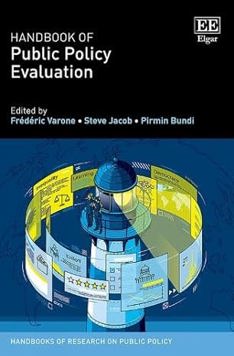Handbook of Public Policy Evaluation

Handbook of Public Policy Evaluation
Description
This comprehensive Handbook examines public policy evaluation in democracies. Focusing on the political dimension of the evaluation process, it argues that policy evaluation can be an emancipatory tool, reducing social inequalities and exclusion, and offers novel suggestions on how evaluations can be used to improve democratic policymaking. Laying out how evaluation relates to policy design, law-making, performance auditing, and policy learning, this Handbook explores how policy evaluation can foster public participation, strengthen governance, and enhance democracy. It uses experimental, constructivist and participatory approaches to analyse global case studies, offering epistemological, theoretical, methodological and normative insights. Contributors examine the institutionalisation of policy evaluation in national and international political systems, how to build evaluation capacity, the transformation of evaluation practice through digitalisation, and the challenges posed to evaluators by post-truth politics and artificial intelligence. This Handbook will be an invaluable resource for academic and professional policy evaluators seeking to deliver effective evaluation processes. It will also be essential reading for students and scholars of public policy, public administration and management, and political research methods.